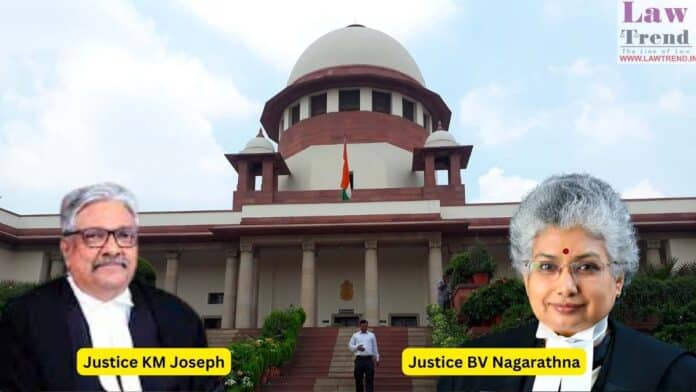The Supreme Court on Monday granted four weeks to the Centre to file its reply to a plea seeking debarment of those against whom charges have been framed in serious offences from contesting elections.
A bench of Justices KM Joseph and BV Nagarathna also said the Union government first needed to identify what constituted serious offences.
Noting that the Centre has not filed its response in the matter the bench asked Additional Solicitor General Sanjay Jain to do the needful.

“First you need to identify what are serious offences. It has to be defined. We will have it in July,” the bench said.
The apex court had on September 28 last year issued notices to the Ministry of Law and Justice, Ministry of Home Affairs, and the Election Commission on a plea filed by lawyer Ashwini Upadhyay on the issue.
Besides debarring people against whom charges have been framed in criminal cases, the petition, filed through advocate Ashwani Kumar Dubey, has also sought direction to the Centre and the Election Commission of India (ECI) to take steps to restrain such candidates as those put on trial for serious offences from contesting elections.
The PIL claimed that despite recommendations of the Law Commission and the court’s earlier directions, the Centre and the ECI have not taken steps towards that.
The plea said out of 539 winners of the Lok Sabha election in 2019, as many as 233 (43 per cent) declared criminal cases against themselves.
Highlighting the statistics from the report of NGO Association for Democratic Reforms, the petition said there was an increase of 109 per cent in the number of MPs with declared serious criminal cases since 2009, with one MP declaring 204 criminal cases against himself including those related to culpable homicide, house trespass, robbery, criminal intimidation, etc.
“What is alarming is that the percentage of candidates with criminal antecedents and their chances of winning have actually increased rapidly over the years. Criminals who earlier used to help politicians win elections in the hope of getting favours, appear to have cut out the middle-man in favour of entering politics themselves.
“Political parties, in turn, have become steadily more reliant on criminals as candidates ‘self-finance’ their own elections in an era where election contests have become phenomenally expensive, but also because candidates with criminal antecedents are more likely to win than clean candidates,” the petition said.
It said political parties are competing with each other in a race to the bottom because they cannot afford to leave their competitors free to recruit criminals.
“The injury caused to people is large because the criminalisation of politics is at an extreme level and political parties are still setting up candidates with serious criminal antecedents. Therefore, voters find it difficult to cast their vote freely and fairly though it is their fundamental right, guaranteed under Article 19,” it said.







